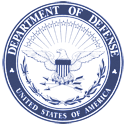Active
There are no SAMM Changes as a result of this Policy Memo.

DEFENSE SECURITY COOPERATION AGENCY
2800 DEFENSE PENTAGON
WASHINGTON, D.C. 20301-2800
11/4/2024
USP001905-24
MEMORANDUM FOR :
DEPUTY UNDER SECRETARY OF THE AIR FORCE FOR INTERNATIONAL AFFAIRS
DEPUTY ASSISTANT SECRETARY OF THE ARMY FOR DEFENSE EXPORTS AND COOPERATION
DEPUTY ASSISTANT SECRETARY OF THE NAVY FOR INTERNATIONAL PROGRAMS
DIRECTOR, DEFENSE CONTRACT MANAGEMENT AGENCY
DIRECTOR, DEFENSE INFORMATION SYSTEMS AGENCY
DIRECTOR, DEFENSE LOGISTICS AGENCY
DIRECTOR, DEFENSE THREAT REDUCTION AGENCY
DIRECTOR, MISSILE DEFENSE AGENCY
DIRECTOR, NATIONAL GEOSPATIAL-INTELLIGENCE AGENCY
DIRECTOR, SECURITY COOPERATION ACCOUNTING DIRECTORATE, DEFENSE FINANCE AND ACCOUNTING SERVICE, INDIANAPOLIS OPERATIONS
DIRECTOR OF CYBERSECURITY DIRECTORATE AND DEPUTY NATIONAL MANAGER FOR NATIONAL SECURITY SYSTEMS, NATIONAL SECURITY AGENCY
SUBJECT :
Defense Security Cooperation Agency Policy Memorandum 24-75, Special Defense Acquisition Fund Procurement Guidance
REFERENCE :
- Title 22, United States Code, Section 2795 Special Defense Acquisition Fund (22 U.S.C. 2795)
- DoD Directive 5105.65, "Defense Security Cooperation Agency (DSCA)," March 22, 2023
- Defense Security Cooperation Agency Manual 5105.38, Security Assistance Management Manual (SAMM), Appendix 8 - Special Defense Acquisition Fund - (SDAF)
This memorandum establishes Department of Defense (DoD) procurement objectives for the Special Defense Acquisition Fund (SDAF) to ensure the funds are used to advance U.S. national interests as well as those of foreign partners. Effective immediately, Implementing Agencies (IAs) will apply this guidance, in conjunction with reference (c), when requesting funds in the SDAF account. There are no SAMM changes in this memorandum.
Authorized in reference (a), the SDAF is a revolving fund that DoD, in consultation with State, uses to purchase defense articles and services in anticipation of future transfer under the Arms Export Control Act (AECA), the Foreign Assistance Act (FAA) of 1961, as amended, or as otherwise authorized by law to foreign countries and international organizations. When SDAF-procured defense articles and services are sold, the proceeds from the sale are returned to the SDAF and used to finance subsequent SDAF procurements. The SDAF helps ensure the United States remains the global provider of choice for national defense capability and capacity building by allowing for the faster delivery of selected defense articles and services to foreign partners. Pursuant to reference (b), DSCA provides oversight, and in coordination with the Department of State, exercises overall program management responsibility for the SDAF. See reference (c) for additional information about the SDAF.
- Procurement Objectives. The total cost of the defense articles and services recommended for procurement each year by the U.S. security cooperation community exceeds the amount of available SDAF funds. As a result, there is a need to prioritize competing procurement proposals to ensure SDAF funds are expended in a manner that most effectively advances U.S. national security and foreign policy interests. When evaluating procurement proposals, DSCA and the Department of State are most likely to approve proposals that align with the below objectives.
- Strengthen the national defense industrial base by acquiring defense articles and services that enhance the U.S. Government's ability to support partners and allies. Among other benefits, this includes extending production capabilities, leveling production rates for items requested by multiple foreign partners, and securing critical system components to address diminishing manufacturing sources and material shortages.
- Strengthen alliances and partnerships by purchasing defense articles and services that have long procurement lead-times (more than 12 months) and are expected to be needed by multiple foreign partners in less than normal procurement lead-time.
- Enhance the operational readiness of the U.S. Armed Forces by purchasing defense articles that are an established acquisition objective for U.S. forces, and whose withdrawal from inventory or diversion of production in support of partners and allies would adversely impact U.S. force readiness.
- Considerations. Absent a compelling justification, DSCA and the Department of State are unlikely to approve proposals that include one or more of the following characteristics.
- Funding Challenges. The SDAF should not be used to initiate the procurement of a defense article or service for a single partner with the expectation of reimbursement once case funding is available. The U.S. security cooperation community can request an exception to this rule during extraordinary situations, but DSCA and the Department of State will strictly scrutinize such requests, to include ensuring there is more than one partner interested in procuring the defense article or service and the procurement directly supports U.S. foreign policy and national security priorities.
- Nonrecurring Engineering (NRE). SDAF proposals for NRE services will be approved on a limited basis and must be supported by a compelling business case. Approval will only be granted in extraordinary situations where there is a clear and substantial benefit to the U.S. Government and foreign partners.
- Technology Security and Foreign Disclosure. When requesting SDAF funds, IAs must indicate in their proposal all potential transfers that require a change or exception to existing technology security and foreign disclosure policies. If necessary, this information can be provided as a classified annex. IAs are discouraged from submitting proposals that rely significantly on a change or exception to existing technology security and foreign disclosure policy. Such proposals will receive increased scrutiny and are unlikely to be approved.
- Commercial Sales. The SDAF should not be used to compete with or detract from U.S. Direct Commercial Sales by reducing the potential market for a defense article or service. Although the SDAF can purchase articles and services that have limited demand and pose too high of a risk for a purely commercial venture, SDAF should not be used to purchase articles and services that U.S. commercial firms have capitalized independently and can be delivered on short notice.
- U.S. Government Requirements. Pursuant to reference (a), defense articles and services procured through the SDAF cannot be sold to the Military Departments or any other U.S. Government entity.
For questions about this memorandum, please contact DSCA's Office of International Operations, Global Execution Directorate, Assistance and Monitoring Division at dsca.ncr.bpc.mbx.sdaf-program@mail.mil.
Michael F. Miller
Director
